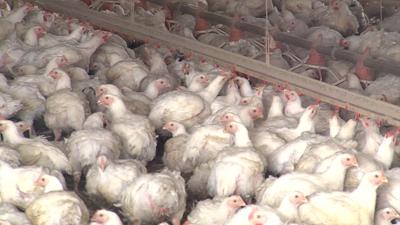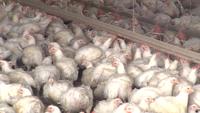BERLIN, Md. - The latest battle has come to an end between Maryland's poultry farms and a Worcester County environmental group.
A water quality permit, written by the Maryland Department of the Environment, was challenged by the Assateague Coastal Trust. They argued poultry farms and the state were not doing enough to limit ammonia spread in the air.
This legal challenge has been going on since 2020 and made it's all the way to Maryland's supreme court. And the MD Supreme Court sided with farmers and growers.
The permit however goes back to 2019. The Delmarva Chicken Association, who supports those farmers and growers, tells WBOC about the permit in question:
"The permit in question, Maryland's 2019 general discharge permit for animal feeding operations (AFOs) and concentrated animal feeding operations (CAFOs), had been challenged by the Assateague Coastal Trust, which filed a petition in Montgomery County Circuit Court in July 2020 for judicial review of the permit. ACT argued that the permit didn't do enough to regulate ammonia emissions from farms, and said MDE should go much further, possibly even requiring farm-by-farm installation of expensive new equipment. A Montgomery County judge sided with ACT in March 2021, ordering MDE to rewrite the permit with stricter standards, but MDE appealed that decision, and the Maryland Supreme Court agreed to hear the appeal.
Which brings us to Wednesday August 9, 2023 when the Supreme Court Ruled that MDE's best management practices were reasonable and consistent with federal and state law.
ACT explained that the ammonia gas released into the air, by the poultry farms, is harmful to the waterways. Nitrogen breaks down from those ammonia gases and either lands into the water or on agricultural soil and creates runoff into the water ways. They argued, either way it's getting into the water and the State and farmers 'best management practices' are not regulating enough.
Executive Director of ACT Brenda Davis says, "If ammonia emissions were being properly mitigated then we would be much further along at meeting our nutrient reduction goals for the bay." She adds, "There needs to be a better way to regulate the amount of ammonia that comes from poultry houses and tighter regulations are one way to make that happen."
But the State Supreme Court found that Maryland's chicken farms are doing enough.
This isn't the first time this issue has been to court. DCA says this is the third time since 2009 that ACT has challenged the permit and lost.
Executive Director of DCA Holly Porter says, "We feel that every time this permit comes out and every time there's a fight saying 'we need more- we need more' which is what we have found often enough from Assateague Coastal Trust is it really is exasperating because there's so much that farmers are already doing."
Porter says the current regulations are making a difference.
"We're seeing those results and we're seeing that farmers are doing a lot and we're seeing that nutrient loads in the bay have decreased," says Porter. She goes on to say, "For this permit, we've seen that it has worked. We would much rather be working with partnering groups and other conservation groups looking at ways that we can mitigate ammonia and mitigate nutrients going into possible waterways, than be fighting at this point in time."




